United Co-op is making big gains in its fight to improve staff retention.
Recruitment difficulties are always right up there as one of the biggest challenges for c-store operators, but one group is proving that a little investment can go a long way to reduce staff turnover.
United Co-op’s year-long campaign to attract better employees and hold on to them for longer has seen staff turnover fall by about 5%. But one of the group’s boldest moves has been a Model Pay Rates trial, in which staff wages are supplemented to compete with other retail employers in areas where stores are struggling the most to fill vacancies.
The trial has been running at six stores - three in what Steve Walker, head of HR, Food Group at the United Co-op, calls ‘thriving’ areas, and three in ‘striving’ locations. The thriving areas are affluent places with low unemployment, while the striving locations are low-demographic areas with higher levels of violent crime. “In areas such as Harrogate, people have the choice between Co-op Late Shop or M&S, and there’s no contest,” says Walker. “The problem in the striving areas is that people don’t want to work in high-risk stores.”
With the Model Pay Rates trial United Co-op is looking at what other retail employers are paying, and introducing a pay supplement to better compete with them. “So, if Asda is paying £5.80 per hour, we will supplement our usual rate of £5.21 per hour,” he says. “This is particularly relevant at high employee turnover sites and has two effects - it stabilises staff turnover and enables us to attract and retain external applicants knowing that we pay above the average rate in the local area. It’s early days, but it’s already proving successful - investing in people pays dividends.”
In fact, the working group that was set up last year to look into the recruitment problem at United Co-op’s thriving and striving stores has been assessing the impact of the trial by measuring the performance of various areas in-store. The ‘hard measures’ include impact on sales turnover, leakage, payroll costs as a percentage of sales, and absence costs. The ‘soft measures’ include employee turnover, stability, feedback on vacancies, and calibre of staff recruited.
Results show that over the nine months the trial has been running, all six stores have doubled cash contributions, and staff turnover has dropped “significantly”.
For example, United’s West Street store in Crewe has seen employee turnover levels fall from 68% before the trial to 41%, and bottom-line profit has increased way beyond the extra wage costs. “In the six pilot stores the trial has led to an extra £150,000 profit in a six-month period, compared with the supplementary personnel costs of £22,000,” says Walker.
“We accept there’s not just one reason for that - the stores are now fully staffed, have good quality people, can get the product on the shelves, and store standards are better, but you can’t argue about the cash contributions - we’ve seen nothing like that level of increase in our control stores. And while we’re yet to see the full-year figures, anecdotally, we’re going to see more significant reductions in staff reduction.”
A SATISFYING RESULT
Walker says the trial has been so successful that the group plans to extend it in January to include a further 12 stores - also a mix of thriving and striving outlets. “If you’re investing £22,000 and getting £150,000 back, it’s tempting to do it in every store, but the jury is still out on whether we add some of our bog- standard stores to the trial and see what effect that has as a control,” adds Walker.
The Model Pay Rates initiative is just one of the improvements United Co-op has made over the past year to boost recruitment levels. Another of the most effective schemes has been the rollout of a training course for managers. They are now provided with a recruiting and interviewing checklist to make sure they follow some basic disciplines, and HR trainers regularly visit stores to check the process is being followed.
Managers also have an induction booklet to work through with new employees over their first four weeks of service. This is signed off by an area manager to verify that the training has taken place. Store managers are also given a target for compliance to the recruitment checklist.
“The target is 75% compliance, and if HR trainers go out to the store and on three occasions compliance is poor, strong words are had,” warns Walker. “But compliance has crept up steadily since the course was rolled out in January and all the stores in the Food Group are now above the 75% target. And there’s also a correlation between this and the level of employee turnover, which is very encouraging. Store managers know it’s not something they can pay lip service to because they will be checked. It also means we’re attracting better quality employees and early indications show that we’re holding onto people longer.”
The particular problems faced at United’s thriving and striving stores have also sparked the development of a new range of recruitment aids. “We were spending a fortune on advertising through local media in these areas and not getting a single response,” says Walker. “We also had very inadequate in-house posters advertising staff vacancies, so we set up a working group, which included people from our marketing team and advertising agency, and did a bit of blue-sky, creative thinking.”
The result was the development of four in-store recruitment aids - Bronze, Silver, Gold and Platinum packages - tailored to the store’s needs. “We spent a lot of time with our marketing people and advertising agency to work out what we wanted to portray in recruitment ads. We aim to reflect a professional image of the Society, and attract quality applicants who live within the catchment area of the store.”
The Bronze package is provided to every store and includes window and ‘A’ board posters with the headline ‘Join Your Local Team’, and mini application forms. The Silver package is provided to stores where a vacancy remains unfilled for two or three weeks, and is designed to raise awareness with shelf-barkers, bus-stop posters, and a generic in-store radio ad. If a branch has a number of vacancies to fill, or is in a particularly difficult area for recruitment, the Gold package offers a store-specific press ad, as well as a store-specific radio ad. Platinum is the “all-singing and dancing” package appropriate for a new-build or remote areas where numbers of applicants are low, and is the Gold package plus large ‘Recruiting Now’ banners and a store-specific leaflet.
“With the new packages, recruitment costs have been reduced,” reveals Walker. “Last year we spent £120,000 in ads, but the whole package, including radio ads and banners, has cost us less than £10,000, and it’s all distributed through our regional offices.”
AN ONGOING BATTLE
United is constantly reassessing these packages, and HR manager Lisa Jones - a key orchestrator in the recruitment overhaul - is looking at the correlation between the age of people and leavers. “The 35-plus age group stay longer than those under that age, particularly the 18- to 24-year-olds,” says Walker. “The more mature people tend to have more sociable shifts and most students don’t have any intention of staying a long time anyway, but the correlation is so significant that it’s not the only reason.”
To address this, United is tweaking some of its recruitment aids to appeal to a more mature person. “But that’s not to say we’re excluding younger people - we still have our junior management programme,” he says. “We’re also looking at trialling new shift patterns to share out sociable and unsociable shifts - particularly at new stores such as the one in Oldham.”
Other measures, including changes to the payroll system, are also improving recruitment. “We’ve introduced an electronic application form to make sure new staff get paid at the right time,” says Walker.
“People were waiting to be paid for weeks on end and that accounted for some voting with their feet.”
But all the hard work is evidently paying dividends. “I’m ashamed to say that staff turnover was 49% in 2004, but since improving our recruitment methods it has fallen to just under 45%,” says Walker. “We still have a long way to go, but the majority of that fall over the last 12 months has been in the past six to seven months since the new recruitment guidelines were rolled out.”
Saltney Challenge
United Co-op has just taken over a former Morrisons Store in Saltney, Chester, but recruitment has been
a major challenge. The group took on the site on October 8 and was due to re-open following a refurbishment on October 13. “A lot of the staff left and we had about 1,150 hours to fill,” explains Steve Walker, head of HR, Food Group at United Co-op. “We were under a lot of pressure to fill those hours.”
The group began with a leaflet drop to 10,000 households in the catchment area advertising the various positions available and the benefits of joining the Society. It then held a recruitment open day at a nearby hotel, attracting 90 people. Of those 90 potential candidates, 22 have been offered jobs, and all department positions have been filled with the exception of butchery. On top of this, it advertised on local and in-store radio, and took a full-page advert in the Chester Chronicle, and is still receiving responses.
Recruitment difficulties are always right up there as one of the biggest challenges for c-store operators, but one group is proving that a little investment can go a long way to reduce staff turnover.
United Co-op’s year-long campaign to attract better employees and hold on to them for longer has seen staff turnover fall by about 5%. But one of the group’s boldest moves has been a Model Pay Rates trial, in which staff wages are supplemented to compete with other retail employers in areas where stores are struggling the most to fill vacancies.
The trial has been running at six stores - three in what Steve Walker, head of HR, Food Group at the United Co-op, calls ‘thriving’ areas, and three in ‘striving’ locations. The thriving areas are affluent places with low unemployment, while the striving locations are low-demographic areas with higher levels of violent crime. “In areas such as Harrogate, people have the choice between Co-op Late Shop or M&S, and there’s no contest,” says Walker. “The problem in the striving areas is that people don’t want to work in high-risk stores.”
With the Model Pay Rates trial United Co-op is looking at what other retail employers are paying, and introducing a pay supplement to better compete with them. “So, if Asda is paying £5.80 per hour, we will supplement our usual rate of £5.21 per hour,” he says. “This is particularly relevant at high employee turnover sites and has two effects - it stabilises staff turnover and enables us to attract and retain external applicants knowing that we pay above the average rate in the local area. It’s early days, but it’s already proving successful - investing in people pays dividends.”
In fact, the working group that was set up last year to look into the recruitment problem at United Co-op’s thriving and striving stores has been assessing the impact of the trial by measuring the performance of various areas in-store. The ‘hard measures’ include impact on sales turnover, leakage, payroll costs as a percentage of sales, and absence costs. The ‘soft measures’ include employee turnover, stability, feedback on vacancies, and calibre of staff recruited.
Results show that over the nine months the trial has been running, all six stores have doubled cash contributions, and staff turnover has dropped “significantly”.
For example, United’s West Street store in Crewe has seen employee turnover levels fall from 68% before the trial to 41%, and bottom-line profit has increased way beyond the extra wage costs. “In the six pilot stores the trial has led to an extra £150,000 profit in a six-month period, compared with the supplementary personnel costs of £22,000,” says Walker.
“We accept there’s not just one reason for that - the stores are now fully staffed, have good quality people, can get the product on the shelves, and store standards are better, but you can’t argue about the cash contributions - we’ve seen nothing like that level of increase in our control stores. And while we’re yet to see the full-year figures, anecdotally, we’re going to see more significant reductions in staff reduction.”
A SATISFYING RESULT
Walker says the trial has been so successful that the group plans to extend it in January to include a further 12 stores - also a mix of thriving and striving outlets. “If you’re investing £22,000 and getting £150,000 back, it’s tempting to do it in every store, but the jury is still out on whether we add some of our bog- standard stores to the trial and see what effect that has as a control,” adds Walker.
The Model Pay Rates initiative is just one of the improvements United Co-op has made over the past year to boost recruitment levels. Another of the most effective schemes has been the rollout of a training course for managers. They are now provided with a recruiting and interviewing checklist to make sure they follow some basic disciplines, and HR trainers regularly visit stores to check the process is being followed.
Managers also have an induction booklet to work through with new employees over their first four weeks of service. This is signed off by an area manager to verify that the training has taken place. Store managers are also given a target for compliance to the recruitment checklist.
“The target is 75% compliance, and if HR trainers go out to the store and on three occasions compliance is poor, strong words are had,” warns Walker. “But compliance has crept up steadily since the course was rolled out in January and all the stores in the Food Group are now above the 75% target. And there’s also a correlation between this and the level of employee turnover, which is very encouraging. Store managers know it’s not something they can pay lip service to because they will be checked. It also means we’re attracting better quality employees and early indications show that we’re holding onto people longer.”
The particular problems faced at United’s thriving and striving stores have also sparked the development of a new range of recruitment aids. “We were spending a fortune on advertising through local media in these areas and not getting a single response,” says Walker. “We also had very inadequate in-house posters advertising staff vacancies, so we set up a working group, which included people from our marketing team and advertising agency, and did a bit of blue-sky, creative thinking.”
The result was the development of four in-store recruitment aids - Bronze, Silver, Gold and Platinum packages - tailored to the store’s needs. “We spent a lot of time with our marketing people and advertising agency to work out what we wanted to portray in recruitment ads. We aim to reflect a professional image of the Society, and attract quality applicants who live within the catchment area of the store.”
The Bronze package is provided to every store and includes window and ‘A’ board posters with the headline ‘Join Your Local Team’, and mini application forms. The Silver package is provided to stores where a vacancy remains unfilled for two or three weeks, and is designed to raise awareness with shelf-barkers, bus-stop posters, and a generic in-store radio ad. If a branch has a number of vacancies to fill, or is in a particularly difficult area for recruitment, the Gold package offers a store-specific press ad, as well as a store-specific radio ad. Platinum is the “all-singing and dancing” package appropriate for a new-build or remote areas where numbers of applicants are low, and is the Gold package plus large ‘Recruiting Now’ banners and a store-specific leaflet.
“With the new packages, recruitment costs have been reduced,” reveals Walker. “Last year we spent £120,000 in ads, but the whole package, including radio ads and banners, has cost us less than £10,000, and it’s all distributed through our regional offices.”
AN ONGOING BATTLE
United is constantly reassessing these packages, and HR manager Lisa Jones - a key orchestrator in the recruitment overhaul - is looking at the correlation between the age of people and leavers. “The 35-plus age group stay longer than those under that age, particularly the 18- to 24-year-olds,” says Walker. “The more mature people tend to have more sociable shifts and most students don’t have any intention of staying a long time anyway, but the correlation is so significant that it’s not the only reason.”
To address this, United is tweaking some of its recruitment aids to appeal to a more mature person. “But that’s not to say we’re excluding younger people - we still have our junior management programme,” he says. “We’re also looking at trialling new shift patterns to share out sociable and unsociable shifts - particularly at new stores such as the one in Oldham.”
Other measures, including changes to the payroll system, are also improving recruitment. “We’ve introduced an electronic application form to make sure new staff get paid at the right time,” says Walker.
“People were waiting to be paid for weeks on end and that accounted for some voting with their feet.”
But all the hard work is evidently paying dividends. “I’m ashamed to say that staff turnover was 49% in 2004, but since improving our recruitment methods it has fallen to just under 45%,” says Walker. “We still have a long way to go, but the majority of that fall over the last 12 months has been in the past six to seven months since the new recruitment guidelines were rolled out.”
Saltney Challenge
United Co-op has just taken over a former Morrisons Store in Saltney, Chester, but recruitment has been
a major challenge. The group took on the site on October 8 and was due to re-open following a refurbishment on October 13. “A lot of the staff left and we had about 1,150 hours to fill,” explains Steve Walker, head of HR, Food Group at United Co-op. “We were under a lot of pressure to fill those hours.”
The group began with a leaflet drop to 10,000 households in the catchment area advertising the various positions available and the benefits of joining the Society. It then held a recruitment open day at a nearby hotel, attracting 90 people. Of those 90 potential candidates, 22 have been offered jobs, and all department positions have been filled with the exception of butchery. On top of this, it advertised on local and in-store radio, and took a full-page advert in the Chester Chronicle, and is still receiving responses.
















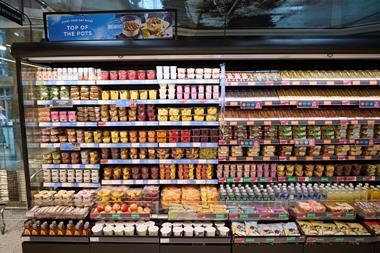

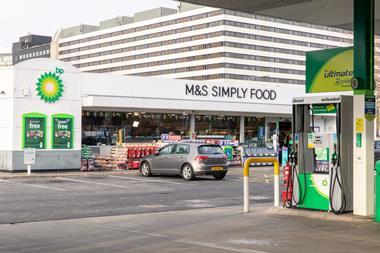
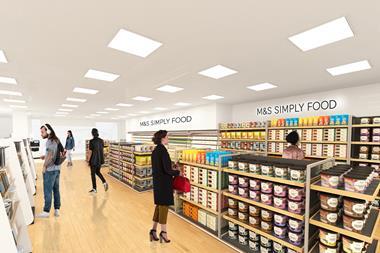



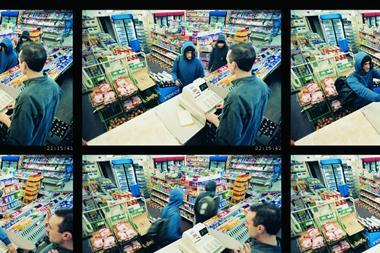

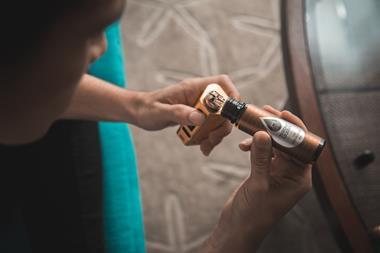
No comments yet